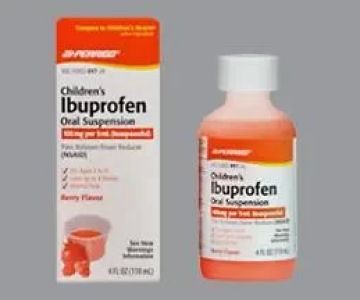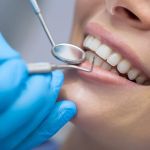Understanding Oral Thrush in Children: Causes and Symptoms
Oral thrush, medically known as oropharyngeal candidiasis, is a common fungal infection in children caused by the overgrowth of Candida yeast in the mouth. It typically appears as creamy white patches on the tongue, inner cheeks, roof of the mouth, and sometimes the throat. Parents often notice their toddlers refusing to eat or showing irritability, which can be linked to the discomfort caused by thrush.
One real-life story from a concerned mother in Texas highlighted how she initially mistook her baby's oral thrush for milk residue. It was only after persistent feeding difficulties and fussiness that she sought pediatric advice, leading to a diagnosis. This underlines the importance of recognizing subtle symptoms early to avoid prolonged discomfort for the child.
1. Diagnosing Oral Thrush in Children Accurately
Recognizing the Visual Signs
Doctors often diagnose oral thrush through a physical exam by spotting the characteristic white lesions. These patches do not wipe away easily and can sometimes bleed if scraped. Other signs include redness, soreness, and difficulty swallowing, which can affect feeding in infants and toddlers.
When to Consult a Healthcare Provider
If a child exhibits persistent white patches lasting more than a few days, fussiness during feeding, or signs of dehydration, it’s crucial to seek medical advice. Pediatricians may take a swab for laboratory testing to confirm Candida overgrowth, especially in recurrent or severe cases.
2. Effective Treatment Options for Oral Thrush in Children
Antifungal Medications: The Cornerstone of Treatment
The most common treatment involves antifungal medications prescribed by a healthcare provider. These may come in liquid form for babies and toddlers, applied directly to the affected areas several times daily. Nystatin and fluconazole are frequently used medicines that effectively eliminate the fungal infection when used as directed.
Supporting Healing with Proper Oral Hygiene
Maintaining oral hygiene is critical during treatment. Parents should gently clean their child’s mouth with a soft, damp cloth after feedings and sterilize pacifiers and bottle nipples regularly to prevent reinfection. Ensuring clean feeding equipment reduces the chance of the yeast thriving.
Natural Remedies and Home Care Tips
Some parents explore natural options such as probiotic supplements or yogurt with live cultures to help restore healthy bacteria balance. While these remedies can support treatment, they should not replace prescribed antifungal medication. Warm saltwater rinses for older children can soothe soreness, but always consult a pediatrician before starting any home remedy.
3. Preventing Recurrence and Promoting Oral Health
Feeding Practices to Reduce Risk
Feeding habits influence oral thrush development. Prolonged use of antibiotics or corticosteroids can disrupt normal oral flora, increasing susceptibility. Breastfeeding mothers with nipple thrush should also seek treatment to prevent passing the infection back and forth.
Regular Pediatric Checkups and Monitoring
Regular visits to a pediatrician help monitor overall oral health and quickly address any fungal infections. Early intervention is key to avoiding complications such as difficulty eating or secondary infections.
4. When Oral Thrush Becomes a Bigger Concern
Complications in Immunocompromised Children
While most cases resolve with standard treatment, oral thrush can be more severe in children with weakened immune systems, such as those undergoing chemotherapy or with chronic illnesses. In such situations, aggressive treatment and close medical supervision are necessary to prevent spread beyond the mouth.
Recognizing Signs of Spread or Secondary Infection
If the infection extends into the esophagus or causes fever and discomfort, immediate medical attention is required. These complications are rare but highlight the importance of proper management and follow-up.
5. A Story of Hope: Overcoming Oral Thrush in a Toddler
Jessica, a mother from California, shared how her 2-year-old son battled oral thrush after a course of antibiotics for an ear infection. Initially alarmed by the white patches and feeding refusal, Jessica quickly consulted her pediatrician who prescribed antifungal drops. Within a week, the patches cleared, and her son returned to his playful self. Jessica’s experience emphasizes the value of timely treatment and following medical guidance to ensure a smooth recovery.
How Dentistry Toothtruth Can Help You
If you’re seeking expert advice on how to treat oral thrush in children or want tailored recommendations for your child’s oral health, visit Dentistry Toothtruth. Our trusted resources provide guidance on effective treatments, prevention strategies, and when to seek professional care, helping your family maintain healthy smiles with confidence.






 Kids Dental Land4.0 (602 review)
Kids Dental Land4.0 (602 review) Dental Town-Pulaski0.0 (0 review)
Dental Town-Pulaski0.0 (0 review) Sierra Family Dentistry4.0 (17 review)
Sierra Family Dentistry4.0 (17 review) Pristine Dental4.0 (237 review)
Pristine Dental4.0 (237 review) Personal Dental Office & Orthodontics4.0 (228 review)
Personal Dental Office & Orthodontics4.0 (228 review) Ideal Smile Dental - Bensalem4.0 (602 review)
Ideal Smile Dental - Bensalem4.0 (602 review) The Importance of Oral Health Education During Pregnancy for a Healthy Pregnancy
The Importance of Oral Health Education During Pregnancy for a Healthy Pregnancy Best Tips for Brushing Your Teeth Properly for Healthy Gums: Essential Techniques for Oral Health
Best Tips for Brushing Your Teeth Properly for Healthy Gums: Essential Techniques for Oral Health Why Skipping Dental Checkups Can Lead to Bigger Oral Health Problems
Why Skipping Dental Checkups Can Lead to Bigger Oral Health Problems Advantages of Porcelain Dental Restorations
Advantages of Porcelain Dental Restorations How Can Diabetes Cause Tooth and Gum Problems? Preventing and Managing Oral Health Issues
How Can Diabetes Cause Tooth and Gum Problems? Preventing and Managing Oral Health Issues Healthy Habits for Promoting Good Oral Health and Hygiene: Tips for a Healthy Smile
Healthy Habits for Promoting Good Oral Health and Hygiene: Tips for a Healthy Smile